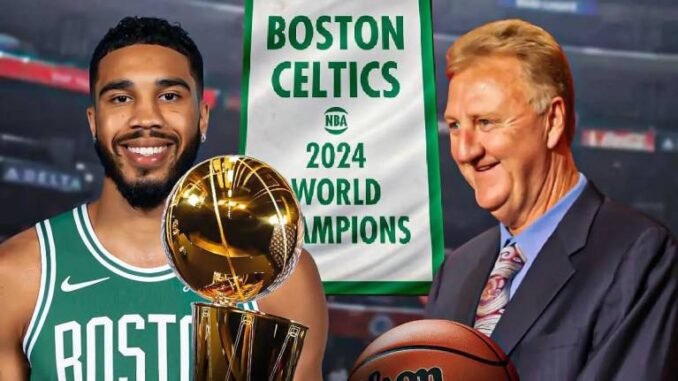
The Championship Hangover: Navigating a New Era for the Boston Celtics
The confetti has long been swept away, the championship parade a cherished memory, and the 18th banner a permanent fixture in the rafters of the TD Garden. For the Boston Celtics, the celebration of their recent NBA championship is officially over. But instead of basking in the glow of a hard-earned title, the franchise finds itself at a pivotal crossroads. A new ownership group, led by private equity magnate Bill Chisholm, has already begun to make its presence felt, and a series of difficult, and in some cases, shocking, roster moves have left the fan base with a mix of celebration and trepidation. The euphoria of the championship has given way to the complicated realities of the NBA’s new economic landscape, a reality that the Celtics must navigate to build a lasting dynasty.
The Celtics’ 2024 championship was the culmination of a decade-long rebuild, the result of a masterclass in team-building from former President of Basketball Operations Danny Ainge and his successor, Brad Stevens. The core of Jayson Tatum and Jaylen Brown, cultivated from the draft, was supplemented by a series of shrewd trades that brought in key pieces like Jrue Holiday and Kristaps Porziņģis. It was a perfect storm of talent, chemistry, and coaching, a team that finally reached its full potential. The championship felt like a vindication for the entire organization.
However, the celebratory atmosphere was short-lived. The ink on the new ownership’s contracts was barely dry when the front office began to make a series of moves that shocked the league. The biggest blow came when the Celtics, in a move widely attributed to the new ownership’s mandate to avoid the NBA’s crippling “second apron” luxury tax, traded beloved defensive stalwart Jrue Holiday to the Portland Trail Blazers for Anfernee Simons. The move, while financially motivated, was a gut punch to the team’s defensive identity. Holiday, a selfless and tenacious player, was a critical component of the Celtics’ championship DNA. His departure, along with the trade of Kristaps Porziņģis to the Atlanta Hawks for sharpshooter Georges Niang, signaled a new, more fiscally conservative approach to roster management.
These moves, while jarring, are a direct response to the NBA’s new Collective Bargaining Agreement, which has created a near-impossible scenario for teams with multiple max-contract players. The “second apron” is designed to penalize teams that spend excessively, freezing their first-round draft picks and limiting their ability to make trades. For the Celtics, with Jayson Tatum and Jaylen Brown on massive long-term deals, the new rules presented a significant challenge. The new ownership group is making it clear that it is willing to sacrifice a degree of talent to stay within the league’s new financial parameters. This is a stark contrast to the old-school mentality of simply spending whatever it takes to win.
The most pressing question now facing the Celtics is not about their financial flexibility, but about the health of their franchise player. Jayson Tatum, who has been the face of the team for years, suffered a torn Achilles in the second round of the playoffs. The injury, a devastating blow, has cast a long shadow over the team’s future. While reports indicate that Tatum’s recovery is ahead of schedule and he is already “moving well,” there is no official timetable for his return. The Celtics will likely have to navigate the upcoming season without their superstar, a challenge that will test the mettle of the team and its coaching staff.
This injury and the subsequent roster changes have thrust the team into a “retooling” year, a concept that is difficult to swallow for a team that was just on top of the world. While the team still has a talented roster, including Jaylen Brown, who is now the unquestioned leader, the loss of Tatum, Holiday, and Porziņģis is significant. The Celtics have brought in new pieces, like Drew Nicholas as the executive director of player personnel and former Duke star Amile Jefferson as an assistant coach, to try and fill the void, but the team’s championship DNA has been altered.
The Celtics’ situation is a microcosm of a larger trend in the NBA. The league is in a state of flux, with a new generation of owners and general managers who are not just focused on winning championships but also on building sustainable, fiscally responsible franchises. For the Celtics, the challenge is to do both. They have a new ownership group that has a long-term vision, but that vision may not always align with the short-term goal of winning. The new era of Celtics basketball is not just about hanging banners; it’s about a new, more complex, and more business-savvy approach to winning that will either redefine what it means to be a dynasty or leave the team in a state of perpetual change. The future is uncertain, but one thing is clear: the Boston Celtics will not be the same team they were when they won their 18th championship. The real test of their greatness is just beginning.
Leave a Reply